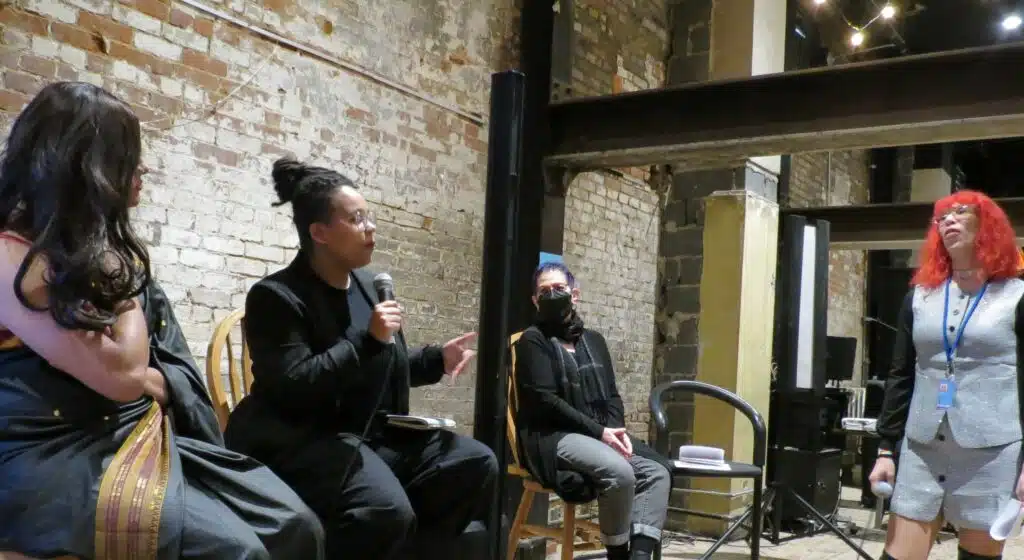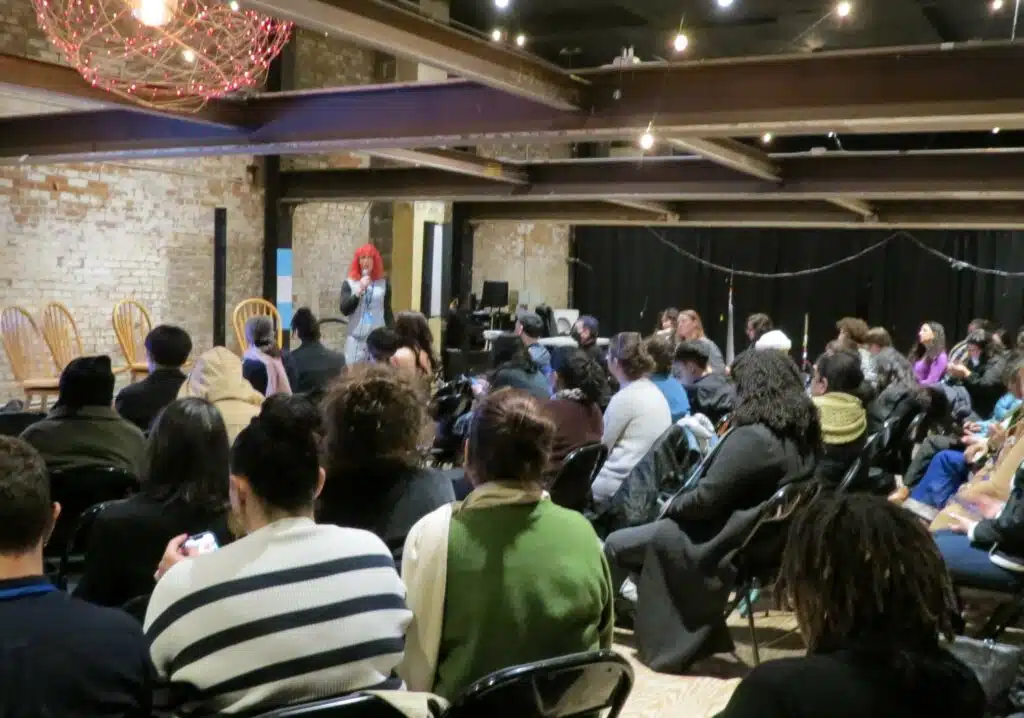In a powerful gathering at CSW 69 marking the 30th anniversary of the Beijing Declaration and Platform for Action, feminist activists from around the world convened to address the mounting challenges that sex workers, LGBTIQ communities, and structurally excluded groups are facing. The event “Taking stock and holding the line: a cross-movement dialogue about bodily autonomy”*, characterised by raw honesty and strategic dialogue, highlighted the critical need for cross-movement collaboration in an increasingly hostile global political environment.
Rising Opposition, Resilient Movements
Speakers unanimously acknowledged the growing opposition to human rights worldwide, especially for structurally excluded groups like sex workers and trans and gender-diverse people. Susana Fried from Just Futures Collaborative described the current political climate as “like waking up every morning and getting ice-cold water splashed on my face – day after day,” as we experience the systematic attempts to roll back hard-won rights in the USA and across the globe. Despite this climate and the rights roll-backs, Susana also reminded us that:
“We are way beyond where we were in 1995, in some important ways. The creation of cross-movement conversations and collaboration is our most important achievement.”
At the core of the advances made on standards around gender and sexuality, trans-inclusion and the rights of sex workers lie the solidarity and collaboration of our movements. The struggle for bodily autonomy has been ongoing. “Our bodies have always been a battleground, but we will continue to fight for our right to choose, to exist, and to thrive,” Manisha, an ILGA World delegate, the founder of Pathchola Foundation Bangladesh and a trans sex worker, reflected on the legal recognition of the Hijra community in Bangladesh back in 2013 and the ongoing battle to repeal section 377 of the Bangladeshi penal code that criminalises ‘unnatural offences’ and to date is used to harass LGBTIQ+ people. She called for global solidarity and an end to systemic oppression emphasising:
“Our dream is not just survival, but leadership. We want to be at the decision-making tables, not just asking for a seat.”


“Intersectionality is not a buzzword; it’s our lived reality and our strongest weapon against oppression.” – Aïda Yancy
Looking Forward: Hope and Resistance
Aïda Yancy from the Holding the Line Coalition spoke about the impact of the decriminalisation of sex work in Belgium “This is a big win for everybody, I think that it sets an amazing precedent, not only in terms of activism, but also in terms of self-determination”. She stressed the importance of interpersonal connections in this moment, stating, “We need to connect, show solidarity, and not let each other go”. She also reminded us of the power of being an accomplice to other movements and the importance of naming and seeing the connections that the struggle for bodily autonomy has with other struggles.
“Decriminalisation is not just about changing laws; it’s about recognising human dignity and the right to work with safety and respect.”
The panel offered concrete suggestions on how feminists can support structurally excluded communities:
- Integrate your support for sex workers and trans rights into organisational manifestos
- Invite sex workers and trans activists to be part of your Board
- Invite sex workers and trans activists to the spaces you are organising. Create space for these communities to speak for themselves and be heard directly
- Hire sex workers and trans and gender-diverse people
- Build cross-movement coalitions
- Provide direct funding to grassroots organisations
- Create professional networks of supportive lawyers, doctors, and advocates


The resources developed by Count Me In! were highlighted as a support to individuals and organisations interested in supporting sex workers’ rights.
“We are not defined by society’s stigma, but by our resilience — as LGBTIQAPH+ people and sex workers, our bodies carry power, our voices demand justice, and our existence is a revolution.” – Manisha Meem Nipun
“Every time they try to push us back, we push forward harder. Our resilience is our power.” – Sabrina Sanchez
Conclusion: Intersectional Solidarity Is Key
The event served as a critical reminder that while opposition is strong, the collective power of intersectional feminist movements is stronger. By centring the experiences of those most excluded and building robust, supportive networks, activists continue to push for a more just and equitable world. As Sabrina Sanchez captured it:
“We are building networks of solidarity that transcend borders, identities, and limitations.”
*The event “Taking stock and holding the line: a cross-movement dialogue about bodily autonomy” took place on March 14th at Blue Gallery. The event was organised by ESWA, CMI! and ILGA at CSW 69. Speakers were: Susana Fried from Just Futures Collaborative, Aïda Yancy from Holding the Line Coalition and the EuroCentralAsian Lesbian* Community, and Manisha Meem Nipun from Pathchola Foundation Bangladesh. Sabrina Sanchez from ESWA moderated the event.